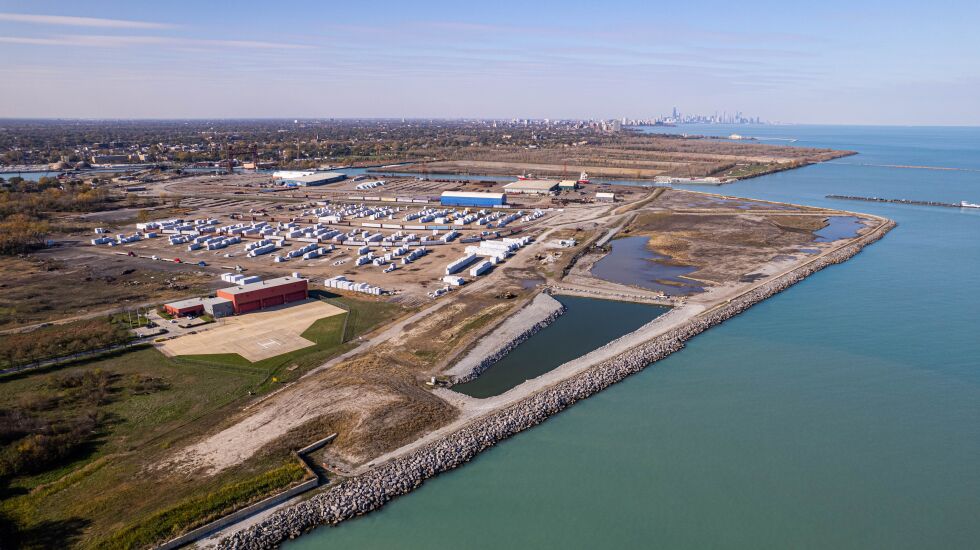
A pair of Chicago organizations are suing the U.S. Army Corps of Engineers in federal court over plans to expand a lakeside dump that holds toxic dredged materials from the Calumet River.
Friends of the Parks and the Alliance of the Southeast filed the suit in U.S. District Court in Chicago, aiming to stop construction that will expand what’s called a confined disposal facility that’s been filling up since the early 1980s.
The expanded site is set to be built on an existing 45-acre underwater dump of the dredged muck next to Calumet Park on the Southeast Side, not far from public swimming.
The groups say the project is “contrary to the public interest,” and they’d like to see the area converted to a park, which was originally promised when the Corps began using the area in 1984.
Since that time, the Corps has used the Chicago Park District land to hold river sediment removed so commercial boats, hauling goods and materials, can pass through the Calumet River and Calumet Harbor to and from Lake Michigan.
The dredged river bottom sediment from one of the city’s most industrial locations has over the decades turned up arsenic, cadmium, cyanide, lead, mercury and polychlorinated biphenyls, also known as PCBs.
The Corps looked at building a new site elsewhere but ultimately decided to expand on the one by Calumet Park.
“We don’t need an expansion to add more toxic dredgings from the river next to Calumet Park, where families gather, do sports, have picnics and play in the water,” Alliance of the Southeast Executive Director Amalia NietoGomez said in a statement.
The Calumet Park Beach near East 99th Street is close to the disposal site.
The groups, represented by Chicago-based Environmental Law and Policy Center, accuse the Corps of not doing a thorough review and say it is violating the federal clean water law.
A spokesman said officials with the Corps have not had time to review the complaint but defended an environmental review that was completed prior to the expansion decision.
“We did an environmental impact statement and our administrative record on that is pretty solid,” said Corps spokesman Michael Padilla.
Construction on the expansion is expected to begin this spring.
That previously completed assessment “does not adequately or accurately assess the social, economic or environmental costs” of the expanded dump, the groups said in their lawsuit.
They noted that the area is an environmental justice community, which means it is a low-income area already overburdened with pollution.

Brett Chase’s reporting on the environment and public health is made possible by a grant from The Chicago Community Trust.







